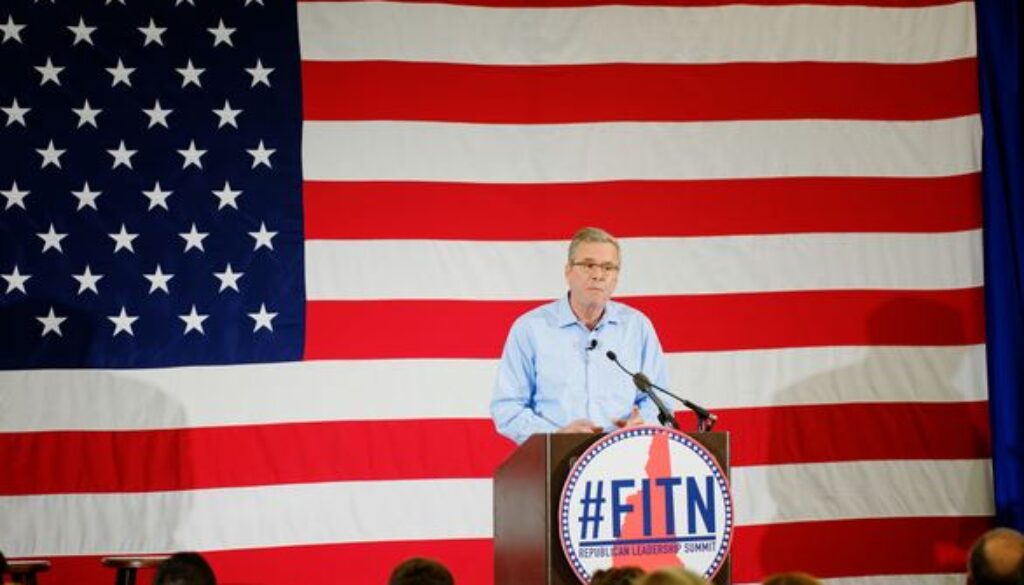What a Jeb Bush presidency would mean for advisers
Florida financial planners are mixed on the contender, citing his fiscal and social conservatism
As former Florida Governor Jeb Bush launches his presidential campaign today, one of his first challenges will be to persuade Republican primary voters he’s conservative enough for them.
Florida investment advisers who knew Mr. Bush as the state’s chief executive from 1999-2007, said he established himself firmly on the right on fiscal and social policies.
“I like it when elected individuals don’t spend money they don’t have,” said Charlie Fitzgerald III, a principal at Moisand Fitzgerald Tamayo in Orlando.
He said Mr. Bush’s ability to reduce spending and taxes — nearly $20 billion — while ending up with a surplus at the end of his term was “like Houdini pulling a rabbit out of a hat. It was an interesting phenomenon.”
(More: “What a Hillary Clinton presidency would mean for financial advisers”)
Chris Markowski, founder of Markowski Investments in Tampa, said “he was a business-friendly guy, there was no doubt about that.”
During his tenure, Mr. Bush didn’t directly address investment advice issues in legislative or regulatory initiatives, according to advisers. But he was the first Florida governor to establish a financial planning week in the state.
“That really impressed me,” said Michael Zmistowski, an adviser at Financial Planning Advisors in Tampa. “He listened to what financial planning really was, and that’s hard for regulators to do. They understood there’s a lot more to it than just selling products.”
But advisers said it is difficult to know what position Mr. Bush might take on investment advice standards, if he were to win the White House.
“He was the classic conservative who thought any regulation was too much regulation,” said Paul Auslander, director of financial planning at ProVise Management Group in Clearwater. “I think that’s how he’ll come down on investment adviser oversight and fiduciary duty.”
But one of Mr. Bush’s signature initiatives — education reform — might provide a different clue as to how he would approach advisers, Mr. Fitzgerald said. Mr. Bush pushed through the Florida legislature a schools’ overhaul focused on testing students and grading schools.
“He would be someone who supports the concept of personal responsibility, and he would be supportive of high professional standards and accountability as well,” Mr. Fitzgerald said.
Support for Mr. Bush’s presidential run varies among advisers.
Paul Grant Truesdell, chief executive of TrueStar Advisors Inc. in Ocala, was not impressed with Mr. Bush.
“He dropped the ball in Florida completely,” he said. “I view him as a caretaker. I didn’t view him as being all that good or bad.”
Mr. Auslander, who is active in Florida Democratic politics, is leery of him. He said Mr. Bush tends to ram ahead with his agenda and lacks a common touch.
“He was brusque,” Mr. Auslander said. “He was socially awkward. He wasn’t comfortable talking to people individually.”
Mr. Zmistowski came away with a different impression.
“If you can put the Bush thing aside and listen to what he’s saying, I think you’ll find he’s an effective, thoughtful and empathetic administer,” he said. “He’s a guy who thinks about what’s good for everyone.”
Putting aside the “Bush thing” might be a high hurdle for some though, like Mr. Markowski, who said Mr. Bush is not inspiring enough to be president. He has qualms about Mr. Bush following his father and brother into the White House, or Democratic candidate Hillary Rodham Clinton sitting in the same Oval Office chair as her husband, former President Bill Clinton.
“Enough is enough with these same families,” Mr. Markowski said. “It’s like we’re running some kind of kingdom here. It’s crazy.”




